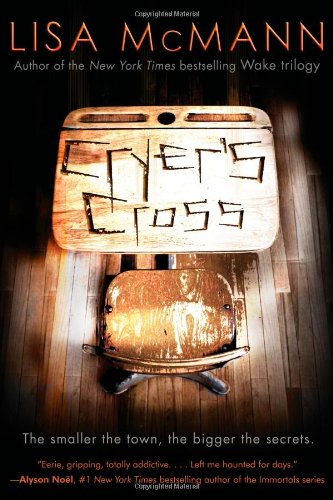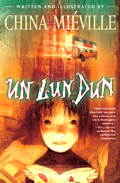 |
| This is book one in the series |
The Chronicles of the Imaginarium Geographica
Synopsis:
John, Jack and Charles, three young men from Oxford, find themselves called to duty to care for what is possibly the most well protected book ever, the Imaginarium Geographica.
Character Likability:
John: The Principal Caretaker of the Imaginarium Geographica, John is logical, wise and patient. He’s not only likeable, he endears himself to the reader with his compassion and at the same time, with his mistakes. He owns them, and does his best to live by a moral code he deems worthy. As the series goes on, John becomes more and more of an adult, and it’s evident in the disregard he pays to the children in the story. He is in no way unlikable, but he is no longer quite in touch with youth. It’s not that he disrespects children, not in the least, more like, he overlooks them.
Jack: Younger, brash, fighting against the powers that be, in the first novel, Jack comes close to being downright annoying. He is the second caretaker of the Imaginarium Geographica. He’s the one chosen to make the stupid mistakes, the one who has to rebel against his own youth and desire to do the right thing. As the series progresses, Jack grows, and it’s easy to see why he was chosen as a caretaker.
Charles: Possibly my favorite caretaker, due to his great affinity for the animals of the Archipelago, Charles is a bit of a third wheel once you discover who the first two caretakers are. Historically, he’s not as recognized, but in this story, he’s quite the standout character. If not him, then some alternate dimension version of him. He believes in travel through both time and space, and studies that intently. Possibly the most down to earth of them all, and certainly the one most prone to mistakes without meaning to (for Jack, it always seems to be a choice, to pick good or evil, for Charles, well… let’s just say, accidents happen).
Mordred: The big bad in practically all of the books except The Dragon’s Apprentice, Mordred (yes, the Arthurian Mordred) keeps showing up in one form or another to ruin the caretakers’ day. This may sound dull, or contrived, but let me assure you, Mordred becomes one complex character who I truly enjoyed reading about.
Merlin: Another character who pops up through the books, the story of Mordred and Merlin is captivating (and takes place largely in The Indigo King), setting up quite a bit of what occurs in both previous and future books.
Tummler: A character pulled from The Chronicles of Narnia, Tummler is a badger who is also a printer, making a mock Imaginarium for distribution, as well as guides to the histories of the world, as well as practical things, like how to get out of a binding, in a book called The Little Whatsit.
Samaranth: The greatest of the dragons we know, he’s often a source of knowledge when the characters don’t know where else to go. Unfortunately, he’s fond of not speaking clearly, so they spend a lot of time trying to figure out what he means.
Fred: The Grandson of Tummler, he is a constant companion from The Indigo King onwards, and becomes the first animal to become Caretaker to the Imaginarium Geographica. He’s another of my favorites, with his animal loyalty and ability to sniff out danger or quell it with a well placed blob of tapioca.
Bert: In it from the beginning, he is mentor and guide to the three new caretakers, Jack, John and Charles.
Aven: Daughter of Bert, future queen of the Archipelago.
Arthur: The “Arthur” character, be he the original, or a descendant (In this series, “Arthur” is the title of the kingship, not an actual name) shows up often. Their noble bloodline allows them to do things others can’t, such as summon dragons.
EVERYONE ELSE: Honestly, these books are packed tight with historical figures, be they real or mythical… everyone from Lovecraft’s Ancient Ones to Benjamin Franklin show up… and always with good reason.
Writing:
The books actually started out catering a bit more to children than I preferred. There were “big reveals” at the end of almost every chapter, and it started to wear on me as a reader. I understand that these books are, in fact, for children, but the “reveals” were starting to get out of hand… especially since the characters being revealed wouldn’t really mean anything except to adults or children who had learned about them. They weren’t often explained historically, and without the background, for kids not in the know, the reveal was meaningless. There was also one point, in particular, where a specific historical figure was eluded to… but one of the characters in the book said the equivalent of “Ah, never mind about them,” which… was actually really annoying… to introduce and then just as quickly dismiss a historical icon.
Other than those brief complaints (and the “big reveal” issue lessens as the series goes on, either that, or Owen has gotten better at making them less blatant), the writing is entertaining, the words flow and action is constant.
Ending:
I have to admit, at the end of the first book, when I reached the “BIG REVEAL”… I chucked the book across the room in disgust, and refused to pick up the next one… it took me a year to pick the next one up. I had no desire to read the series after finding out who the characters were at the end of the first book. For whatever reason it just annoyed the hell out of me. Perhaps because it seemed like such a gimmick… at the end of the first book, there seemed, at least to me, little point in having the main characters be who they are (I’m being vague on purpose, so as not to ruin the surprise), but as the series went on, it became evident that there was in fact a reason, and that the story was an interesting, well thought out one. I’m glad I picked the series back up… and the ends to the future books in it have been much more satisfying.
Plot:
The stories follow the adventures of the Caretakers as they try to keep balance between two very different worlds. I really don’t want to elaborate too much, for fear of giving away something important.
Believability of World:
The way this series ties in to real world events makes it a believable bit of story telling. It is a wonderful flight into a million “What if”s concerning bringing some of the greatest literary minds together… and you get swept up in the energy of it.
Overall Grade: A- Stick with this series. I did, and it’s become complex and twisted.












